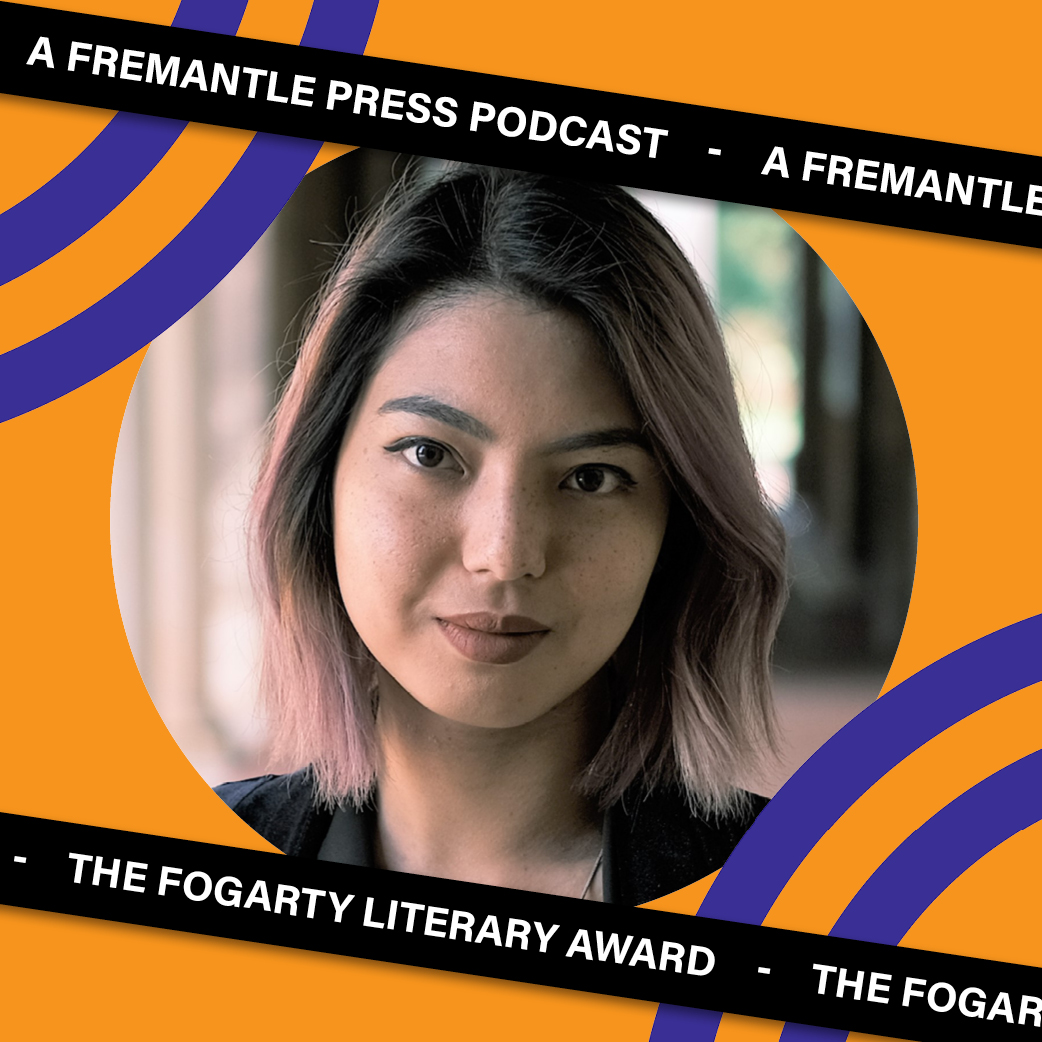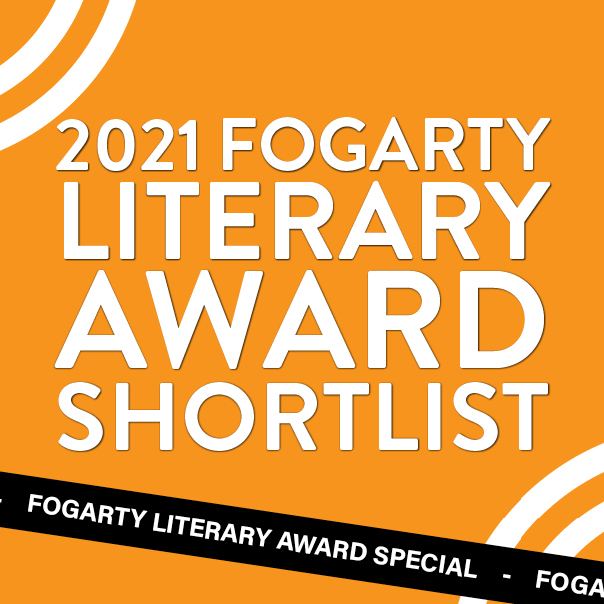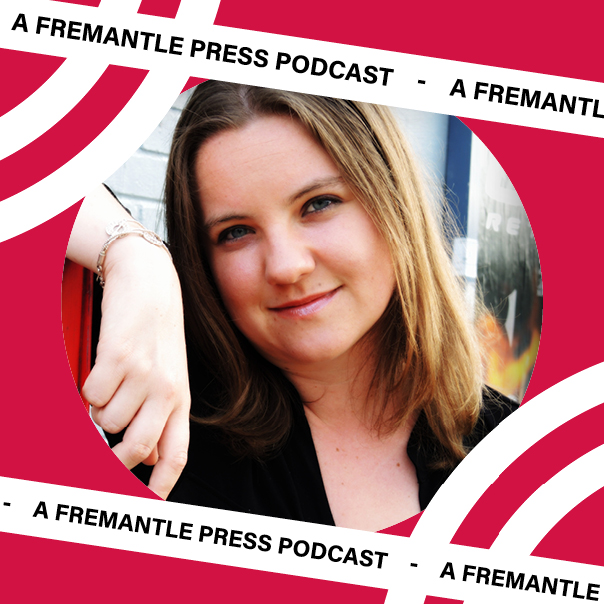Speaker 1 00:00:11 Welcome to the Freeman Press podcast, fo literary Awards special edition. This podcast is recorded in Wola on NoJa Bja, and we offer our respects to Noar elders past, present, and emerging. My name's Georgia Richter, publisher and Judge of the Fogerty, along with publisher Kate Sutherland, an author Brook Tennell. In a moment 2021 Fogy Literary Award winner Brook Nell, who author of the Glasshouse will interview Katherine Allen about her novel, the Skeleton House Growing up in America. Catherine Allen was one of those weird homeschool kids, rarely seen without a pen, paper, or a library book. She moved with her family frequently during childhood and finished her hybrid education in a small town in the desert. She completed her ma at City University of London where she wrote the first draft of her debut novel. She now lives in Perth with her husband and does her best story plotting while swimming path.
Speaker 1 00:01:07 Shortlisted novel is the Skeleton House and it's about a woman called Meg, who's somehow gone from being a single mother in debt to a married woman with a second child and husband, who with great insistence works to provide for her a dream home and a perfect family. This novel set in a small desert town in Nevada. The problem is that the more stifled Meg feels, the more insistent her husband car becomes on making her live their lives according to his dreams. Skeleton house is full of domestic detail and spectacular tension. It's driven by this sense of foreboding and suffocation. And I read it in one marathon sitting because I just couldn't look away. Let's hear the interview. Brooke Nell has recorded with Catherine Allen.
Speaker 2 00:02:00 So Catherine, welcome to the podcast.
Speaker 3 00:02:02 Thank you.
Speaker 2 00:02:04 So great to talk to you today. So what we're gonna chat about is your manuscript, the Skeleton House. Are you able to give our listeners a little bit of some background of what the manuscript's about?
Speaker 3 00:02:14 Yeah, yeah, definitely. It is a contemporary novel, um, and it's set in St. Stevens, which is a fictional town in the desert outside of Las Vegas. Mm-hmm. <affirmative>. And it follows Meg's story. Meg lives there. She's was born and raised in St. Stevens and she lives there now with her husband and two small children. And her husband is building their forever family home, despite the fact she's been trying to get out of there since her teens. She has a secret as to why that didn't go as planned, and a series of bedtime stories that she tells to her five-year-old son Finn, start to reveal how she ended up where she is. The closer the house comes to completion, the more controlling the marriage comes and starts to unravel.
Speaker 2 00:03:07 Very enticing. So could you maybe give us a little bit of an extract to let Ritas kind of into the world of the skeleton house?
Speaker 3 00:03:14 Yeah, absolutely. This is from quite early in the novel, Kyle recited numbers, gauge of wire weeks until the next stage, months until the move we were getting close. We'll be in by Valentine's Day for sure. Maybe just after Christmas. Can you imagine Finn's fingers curled around the top of Kyle's belt? He hopped but didn't swing last month. He broke a belt loop and Kyle put an end to that game. Honey, I interrupted. Someone is being very patient. Kyle looked down. You are, aren't you buddy, please. Fin nodded. Kyle cleared his throat and how he clapped. Step on up folks. Kyle gestured up. What would be the walkway? Allow me to show you the extremely well presented custom design build here on 39 Gabel Avenue. We move toward the concrete slab little man. You're going through the wall. Kyle bent and steered him his hand covering the top of fin's head.
Speaker 3 00:04:20 He minds turning a door handle. Ladies first home, sweet home. Let's put away our shoes. We pretended to take off our shoes and ventured in. Blue desert sky filled the gaps and the beams made lines on the concrete pressing down on us the ribs of a prehistoric beast that had swallowed us whole sbra stripes covered our faces and arms. Here's the kitchen where mommy will make delicious dinners. Quick, pretend you're eating spaghetti. Now let's watch a movie. It was an open plan, ranch style house, one floor with a basement on two acres of land. We were the first to build out this direction and I couldn't see another house. There would be three bedrooms on the ground floor and the living room and kitchen would be separated by a kitchen island with a big bookcase on the back. We played house kicking corners of plywood and shuffling through piles of sawdust.
Speaker 3 00:05:21 The heat of the day crept up and we retreated back to our trailer, our temporary home of the past year and a half. My period was three days late and Kyle chewed me away to take a nap with a smile on his face. I laid on my back and stared at the peeling ceiling and cracked plastic blinds which were screwed shut against the sun. There's no way I was pregnant again. I couldn't be beads of sweat rolled from the crease of my knee down my calf. I felt footsteps and hurt him. Shush the children on the other side of the flimsy door. Living in the trailer was an adventure to Kyle. Everything was an adventure. He laughed when the air conditioning broke for the first time on 117 degree day, he drove us to the Hitchen Post and bought a soft serve. We swiveled on stools and counted the red cars and blue cars on the highway as sweat dried on the back of my neck and the rosy plumes on the children's cheeks melted away.
Speaker 3 00:06:23 I told Kyle I didn't feel like myself in Mormon wives monthly I'd been promised this would open up the dialogue, but Kyle heard from a coworker that a father of a cousin of a friend said that low thyroid or hormonal changes or wonky iron levels could lead to hysteria and depression in females. When I tried to explain that hysteria was an outdated and medically inaccurate term, he said the father of the cousin of a friend of the coworker is a doctor. So perhaps I didn't know everything after all I interrupted. I want to go back to school part-time. Nothing crazy. He looked sad. You don't find your life fulfilling. He means that there are no unhappy mothers in this town, not a single one. We are thankful that we can stay at home and raise our babies while our husbands tough it out in the working world. We are thankful that we don't live in Vegas where our children would be exposed to drugs and immoral behavior in school. We're safe here, special, not part of Clark County except in name. We make elaborate headbands and bows to put in our daughter's hair and we sew capes for our superhero boys. They play in the desert catching lizards while we cheerfully cook and put clean sheets on beds and kiss husbands and have more babies. We are satisfied with our well well-oiled clock of domestic bliss. We are good families that raise good children.
Speaker 2 00:07:54 Thanks so much for that. So that's got so many of the themes and issues that are gonna be plaguing Meg throughout the novel and also that setting of that not quite finished dream house as well. So in the novel you've got Meg, you've got her husband Kyle, and then um, they've got the two little kids, but Finn isn't actually Kyle's biological child, is he? So that's, there's a little bit of tension going on there. The third child tension, the wanting to go back to university tension. Yeah, very ominous setup. It's really good. Thank you. Another thing that I noticed about when I read the skeleton house was the way it'd actually structured the manuscript. So it's mostly this chronological study of what's going on in this family, the house being developed, them kind of moving towards moving into it. But it's been interspersed with a few of these really short sections that have this main character, Meg, and she's on a helicopter in a some sort of emergency, which we don't really learn about till later. And then there's also passages, which is her directly talking to her young son Finn at night. So without kind of giving away what's going on in either of those situations, are you able to tell us anything about how you chose that structure and how you put those pieces together?
Speaker 3 00:09:18 Yeah, absolutely. That's a really, really fun question. That's a writer to a writer question. <laugh>. I love that. <laugh> excellent. Both of those were tools that I took from my storytelling toolbox. Mm-hmm. <affirmative>. Um, and they were both very deliberately used to address some kind of issue that I was having with earlier drafts. So the helicopter, um, I started calling them the helicopter and the bedtime stories. So they were, yeah, I, I had those planned. And the helicopter, um, was in response to some early feedback on an earlier draft that the book was a slow burn that did eventually pay off. Mm. And I thought, slow burn is good, but I don't want it to be simmering so long that my dinner guests get up and leave. You know what I mean? <laugh>. Yeah. Yeah.
Speaker 3 00:10:09 So, um, that was a way to sort of frame the early part of the novel and give the reader a hint that something big is going to happen here. Um, so then when the readers dropped into this quite domestic environment, they already have that setup that something is building. I did make other changes, like the first three chapters I condensed into one mm-hmm. <affirmative>, uh, which was really tough, but, um, the helicopter was part of that fix. And then the bedtime stories, I find it really interesting talking to other writers about the rules that we make for our own manuscripts and our own stories. So I think every novel has this weird set of rules that the writer has made, but you know, the reader won't necessarily pick up on it. And one of the rules I made is I wasn't allowed to use any flashbacks before Finn was born.
Speaker 3 00:11:08 I said that because that part of Meg's life, she's not gonna tell us about that. She's not gonna tell us her life story. And also that part of her life, she's sort of closed the door on it and won't let herself emotionally go back there. Mm-hmm. <affirmative>. So I, I couldn't show flashbacks before then, and I had to come up with some other way to give a little bit of context and a little bit about, you know, her childhood and a few other things. And I, I did end up breaking that rule a little bit, but it was a really good guide to give. You're aware that the door is shut and there's something behind it, but the bedtime stories, I guess are like the reader being able to like peek through the keyhole and get a little glimpse. So yeah, that's the reason why, um, I chose to put in,
Speaker 2 00:11:54 I think having read it, they work really well because I didn't see those rules as you said, like a reader won't necessarily know the rules that the author has set up for themselves. But the character of Meg, like that idea that she is not going back to the prefin meg and she's not interrogating her in any way, but little boys and little children will ask their parents about their lives. And her motherly love for Finn is, is a good justification for why she starts to tell things. So it's really interesting choices that have become really natural in there. I think so. But yeah, it's so interesting to get that peak behind the curtain kind of thing.
Speaker 3 00:12:34 Yeah. Yeah, definitely.
Speaker 2 00:12:36 Um, and so finally, I just wanted to know, what does it mean for you to be one of the six writers who've been shortlisted for this year's Fogarty Award?
Speaker 3 00:12:46 I mean, it's just amazing. Um, I was a little bit speechless when I got the call. My initial reaction wasn't to jump up and down and, and squeal, which is what I thought I would do. Um, it was to give this big sigh of relief mm-hmm. <affirmative>. Cause I went, oh, I've, I've done it. Um, I've, you know, managed to write something that's of the quality that can get me on a shortlist for a prize like this. My story has resonated with people and really touched them and, and impacted them. I know just the talent. There's the amazing writers that this award and Fremantle Press attract and it, it also feels like that community has sort of reached their hand down and like, oh, hey, you belong up here. Like, come up here and join us. Um, you know, and it's, I just feel like I'm being really welcomed into this amazing community and, um, it still hasn't fully sunk in. It's still <laugh>, but yeah, it's, it's just such an honor. I'm really, really excited.
Speaker 2 00:13:48 Yeah. And that I think other people have talked about, and it was the same for me of how even though you do get feedback, like you said with your manuscript, you'd had that feedback about, um, the slow burn, but you don't really know, is this the kind of thing that people want to read? Is this the kind of thing that's that's worth being shortlisted for something? And then to get that acknowledgement. Um, when you said relieved, I was like, yeah, that was one of the first feelings that I had as well, was like, okay, I'm on the right track. You know, so Yeah. Yeah,
Speaker 3 00:14:18 Yeah. And sort of to having all these other ideas of other things I want to write and not that they were put on hold, but I was like, am I going in the right direction? Should I like keep doing this thing? And now I'm like, yep, yep. I'm gonna keep going.
Speaker 2 00:14:32 <laugh>. Yeah. Yeah. No, that's really good. So thank you so much for talking to us today. Congratulations on your shortlisting. All the best for the award.
Speaker 3 00:14:41 Oh, thank you so much for having me.
Speaker 2 00:14:44 So I'm going to be the host of the 2023 Fogarty Literary Award, which is a free event that's going to take place at the E C U Spiegel Tent on Thursday, the 25th of May, 2023. Tickets are available from the Freemantle Press
[email protected]. I'm Brooke Darnell, and thank you so much for spending time with us today.


